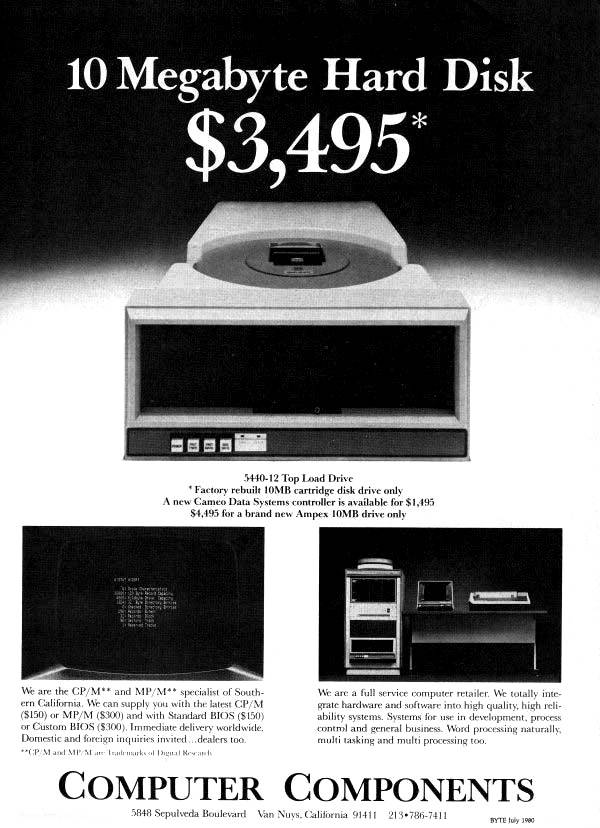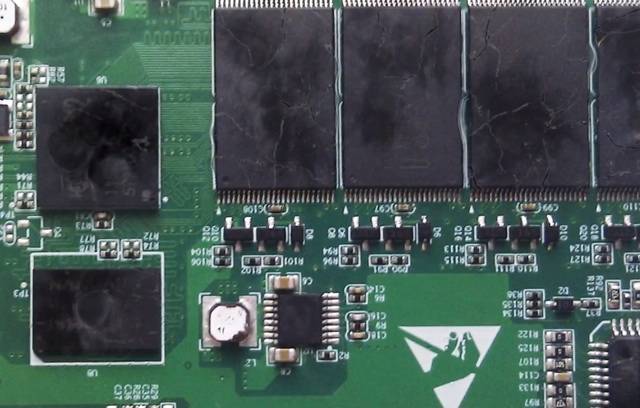Original URL: https://www.theregister.com/2012/10/12/flash_storage_is_too_flimsy/
Why is solid-state storage so flimsy?
Flash, ooh-err
Posted in Personal Tech, 12th October 2012 11:41 GMT
Something for the Weekend, Sir? No matter how much storage space you get, and no matter how much you free up later on, it always gets stuffed to the gills.
I am, of course, talking about my attic... and the garage, and indeed the garden shed. Many reasons for this have been mooted, including the need to do something with my kids' childish belongings as they grow up, or, more likely, the result of my latent hoarding instinct coming to the fore as I grow older myself.
None of these reasons completely account for the mix of potentially useful objects I have stashed away alongside utter rubbish. In fact, the only item I haven't deposited in any of these places is a set of golf clubs: I may have my faults but I'm not a sad bastard. I'll start playing golf when I'm dead.
El Reg readers are the last people I would need to lecture on the topic of buying more storage space than you think you'll ever need. So I'm going to do exactly that.
I’m worried that I under-specified the hard drive in my new notebook. At half a terabyte, it's not much. The problem is that it's all I could afford: this is SSD storage we're talking about here. If I’d asked for any more, the upgraded spec would have cost almost as much as the notebook in the first place.

Those were the days...
No doubt many of you, like me, remember with fondness/whimsy/disbelief how much storage - if any - was to be found on your first personal computer. For the moment, let's forget the Spectrums, BBC Micros and Atari STs on our bedroom carpets: I'm talking about PETs, fanless Amstrads and dual-floppy IBM Compatibles on office desktops.
I worked at my first job using a Petite typewriter for six months before being assigned an IBM clone loaned from Qubie. It had a hard disk - which itself marked me out as a target of hate for receiving special treatment from the boss - with the magnificent capacity of 20MB.
Once the initial thrill had worn off some three days later, I realised that a 20MB hard disk was crap. This was 1987, after all. Within a couple of weeks, the drive had begun squealing like the wheels of a rusty tea trolley, and it became apparent that 20 megs could no longer contain my data files, let alone the operating system and other programs.
This meant I had to rewrite my own Lotus 1-2-3 macros so that they would read spreadsheets from and dump temporary data to a series of 5.25in floppies while consolidating year-end figures. This stretched what should have been a three-minute automated process into an hour-long slog requiring me to sit and stare at the screen and insert a dozen floppies in turn at my - ho-ho, so amusing - macro prompts.
I knew then that, when I had enough money to buy my own computer, I would generously overestimate how much storage I'd ever need, then double that figure, and triple the result.
Underpants to under-buy
Underbuying storage seemed to be endemic in that era. We used two digital typesetters - this was still two years before taking the desktop publishing plunge - one of which was still using a system based on 8in floppies. The staff carried these around with inexplicable reverence bordering on the holy. I would fantasise walking behind them in single file, swinging an incense burner.
The manager at the other bureau once gave me a tour of its server cupboard, a dimly-lit and air-conditioned walk-in room larger than my hallway, all humming and blinking and swirling with what looked like dry ice around our feet, as if Captain Kirk had relocated the bridge of the Enterprise onto the set of Saturday Night Fever, as he flourished dramatically and announced: "Here we have one hundred megabytes!"
Today, I work with files that are often bigger than 100MB each. Video rough cuts get thrown my way, typically turning up at 1GB per minute.
Thankfully, I am anal about backup and thorough with my data transfers. I carry a clutch of USB portable drives everywhere I go, looking like some kind of cybernetic rat-catcher. With all this, I can manage the limited 500GB or so on my notebook.
But what worries me now is that SSD storage probably isn't as rock-solid and reliable as I thought. Despite all the advantages that SSD wields over a spinning hard disk - resistant to knocks, no moving parts, no having to remember to spell it with a 'k' rather than a 'c', no squealing like the wheels of a rusty tea trolley - Flash memory has one serious disadvantage: if something major goes wrong with the drive, the result for your data is nothing less than catastrophic.

Ouch
If a hard disk starts going glitchy, I can usually back stuff off it before it's too late. If the disk dies, I can almost certainly find someone who can salvage much of the data from it. But if a SSD goes glitchy, the data vanishes up its own arse in an instant, completely and irretrievably.
And Flash tech has a fixed lifetime, or at least decreasing performance over time, so buying lots of it doesn't necessarily prolong its usefulness if you use most of it very often. My super-expensive SSD notebook could be effectively knackered in three years' time and utterly worthless in five, for all my attempts to future-proof it by over-specifying all the other components.
OK, this assumes I'm really hammering the storage at all hours of the day and night, and that the SSD controller is not doing its job. What's playing on my mind, though, is that the SSD unit in my notebook might not be easily replaceable, or even removable at all.
In the meantime, internal hard disks are getting easier and easier to swap out as the years go on, and the little buggers get cheaper and cheaper. Why was I so stupid as to put all my faith in a storage technology that's so fragile, short-term and expensive?
Flash, I love you. But we only have 14 hours to save the Earth. ®
 Alistair Dabbs is a freelance technology tart, juggling IT journalism, editorial training and digital publishing. His first job was on a weekly computer tabloid called PC Business Direct where he discovered that people didn’t mind him asking questions about disk drives – at least, not Ralph Bancroft.
Alistair Dabbs is a freelance technology tart, juggling IT journalism, editorial training and digital publishing. His first job was on a weekly computer tabloid called PC Business Direct where he discovered that people didn’t mind him asking questions about disk drives – at least, not Ralph Bancroft.